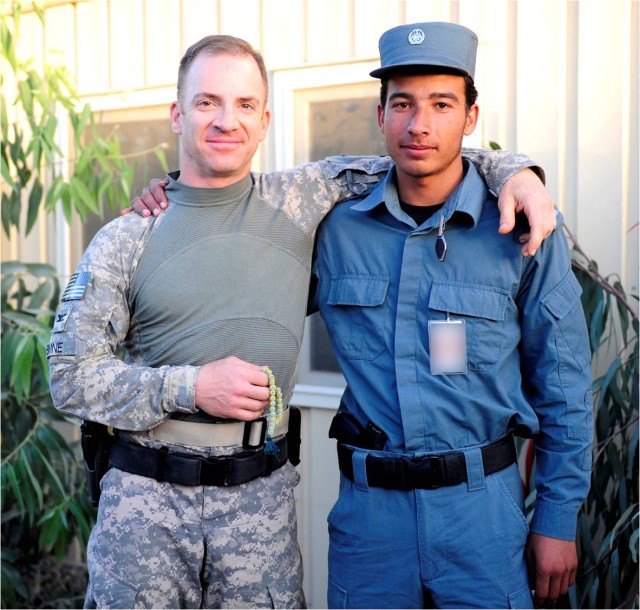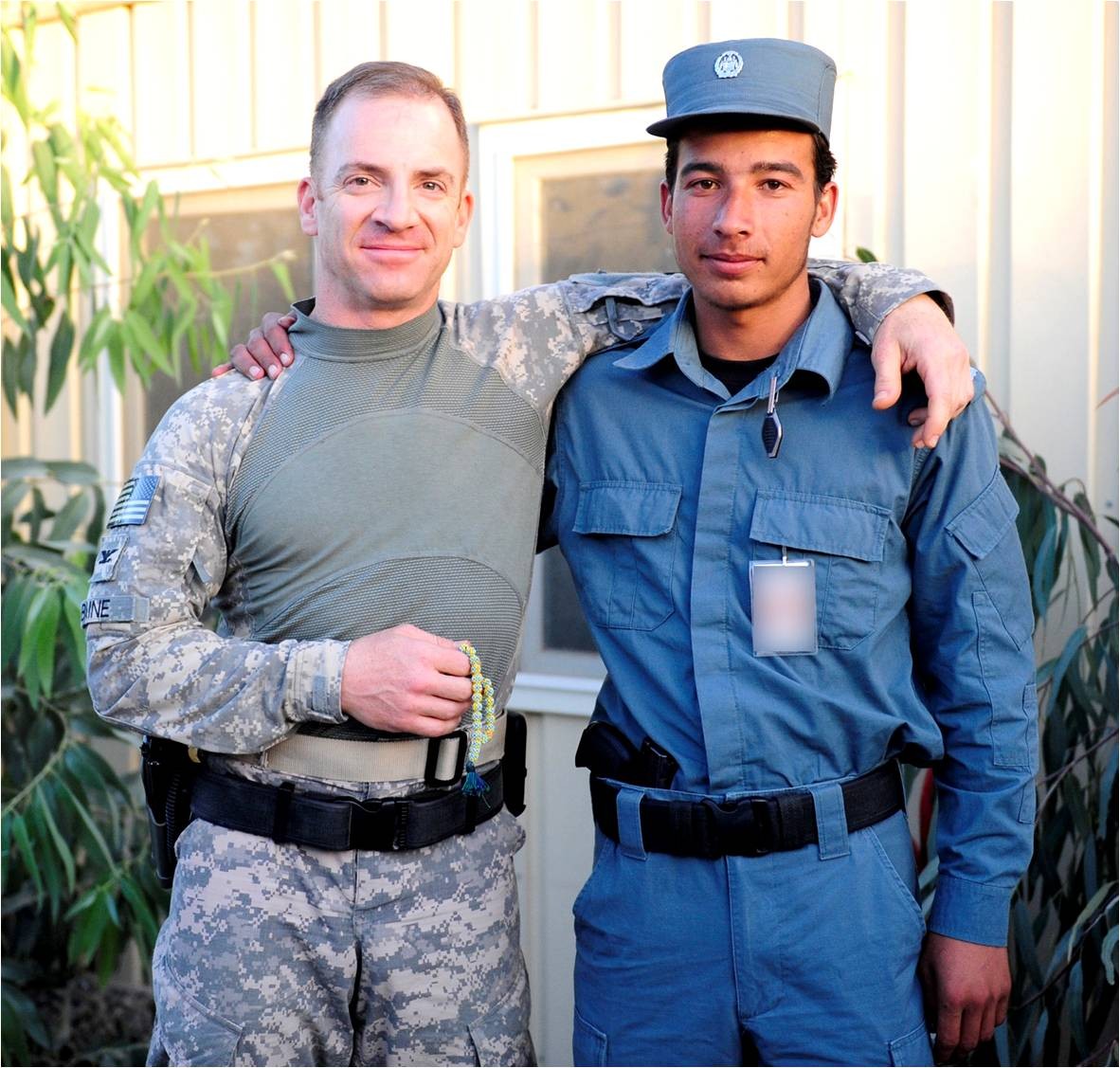
FORT SAM HOUSTON, Texas -- During a recent visit to Fort Sam Houston for an Army Medical Department Center & School Leadership Call in Blesse Auditorium, Col. Gregory C. Baine, commander of Regional Support Command-South, a brigade-level joint and combined command in combat in Afghanistan, described his unit's mission and the success of American efforts in that country.
"We have made significant progress since November 2009 growing the Afghan National Security Forces, creating an institutional training system similar to TRADOC (U.S. Army Training and Doctrine Command) to improve quality and professionalization of the force, training Afghan instructors, educators and advisers to train their countrymen, and improving literacy within the forces," Baine said.
Baine is responsible for the health, welfare and morale of 257 Soldiers, Sailors, Airmen, Marines and French officers assigned to operational and tactical control for the Regional Support Command.
He also is responsible for the oversight of the Regional Military Training Center, the Regional Police Training Center and six subordinate police training centers located throughout southern Afghanistan.
The colonel manages planning, programming and execution of Afghan Security Force Funds in excess of $170 million to train, equip, maintain and sustain one Afghan National Army Corps, one Regional Police zone, one Border Police zone and one Afghan National Civil Order Police brigade deployed across the four provinces of southern Afghanistan.
His command is in direct support of the International Security Assistance Force Regional Command-South with the mission to resource requirements and build sustainable capacity and capability of Afghan National Security Forces.
"We are helping the Afghanistan army, police and air force help themselves by working toward solutions to problems that will allow the Afghanistan people to develop their own way of doing things by teaching them, not doing for them," Baine said.
Baine noted that the Afghanistan training mission can't be accomplished by looking through "western goggles," but the collective experiences of the multinational force working in Afghanistan must be applied to the local culture for success.
Achieving success involves a three-part strategy: disrupting the insurgency, protecting the people, and denying the Taliban the ability to unseat the government; growing the Afghan National Security Forces; and transitioning responsibility for security to Afghan control as conditions on the ground permit, the colonel noted.
Establishing an enduring institutional training structure with schools and academies to build the foundation to professionalize the force, building a sustaining logistics stewardship system and creating a self-sustaining medical infrastructure are critical command missions.
Baine emphasized that an enduring institutional training program, logistics stewardship and medical support must be designed as the best systems for the Afghans to manage themselves by recognizing their way of doing things.
Institutional development involves establishing irreversible momentum by creating institutions such as the National Military Academy, the National Military Hospital, a military training center and an Afghan National Police Academy with instruction by Afghan leaders serving their country and conveying confidence in the future of their nation, the colonel noted.
"Literacy and leader development are definitely top priorities," Baine said.
He emphasized that all members of the Afghanistan National Security forces undergo literacy education to at least the third-grade level as part of the institutional professionalization training.
The benefits of literacy and language training are the foundation for retention among members of the Afghan security forces most of who serve with a sense of national pride.
Baine said that to sustain momentum toward an enduring Afghan National Security Force, the command needs to fill critical trainer shortfalls, increase focus on professionalization, establish a culture of stewardship and reinforce a commitment to accomplishing the national security forces missions.

Social Sharing